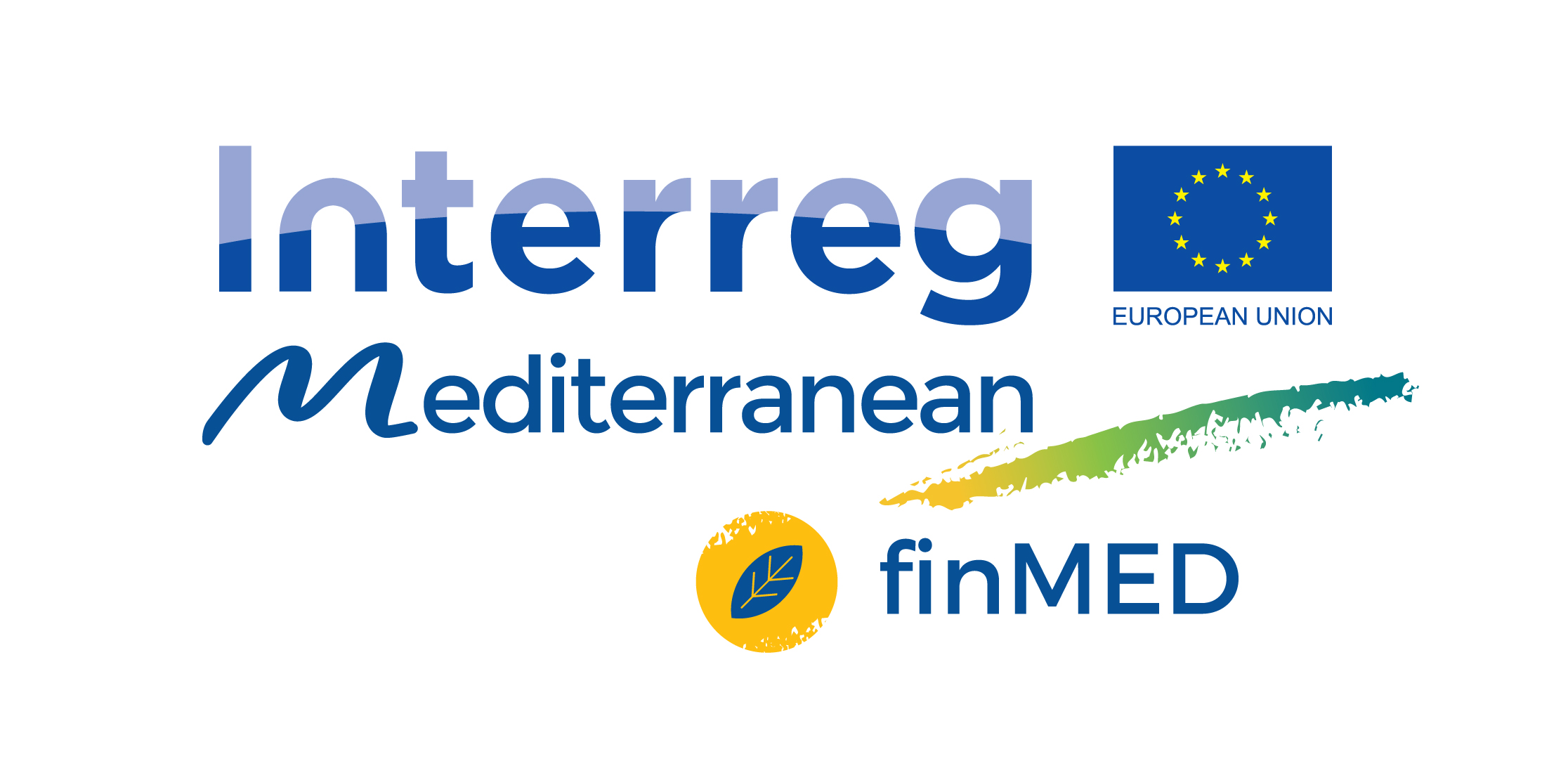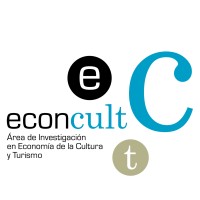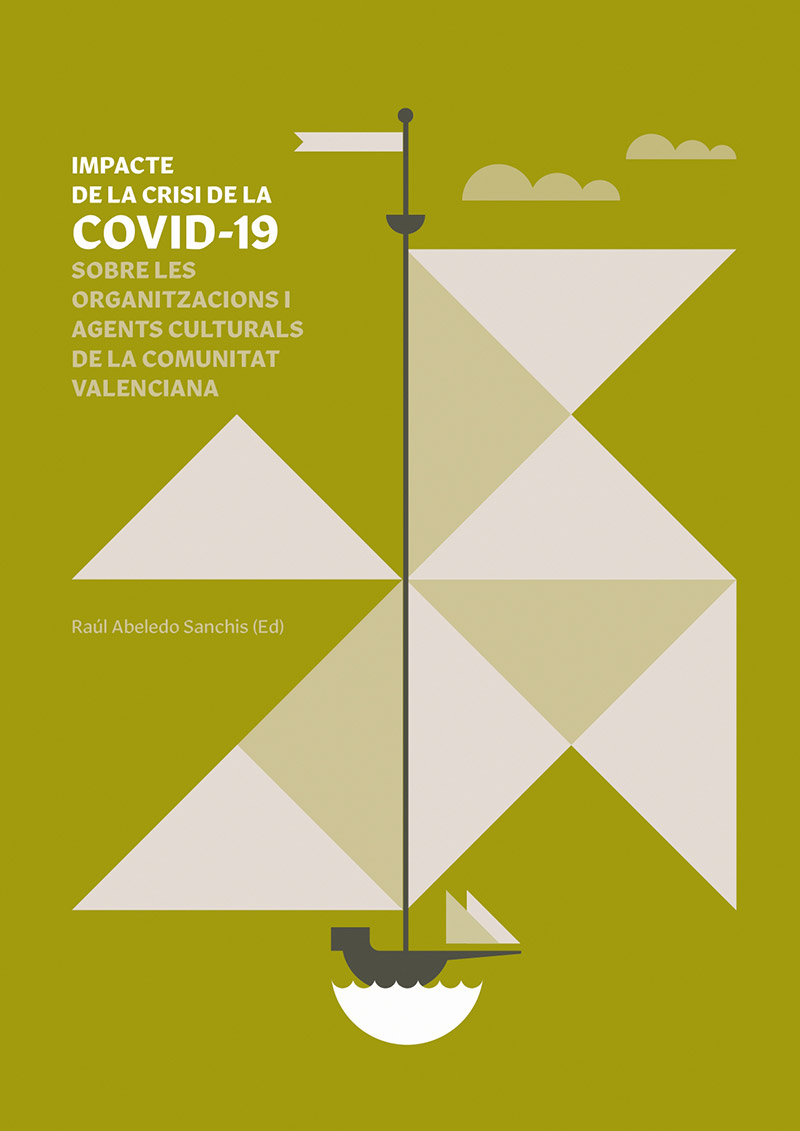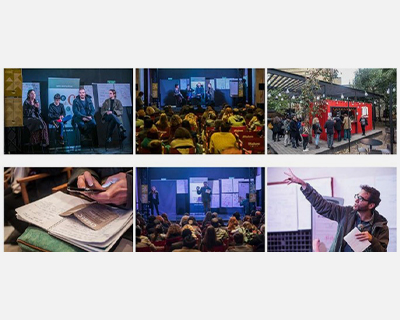CHEBEC
«CHEBEC: Hacking the mediterranian economy through CCI”
Chebec main objective has been helping creative and cultural industries access international new markets while keeping their own identity. Chebec boosts an innovative and comprehensive process that takes the internationalization of cultural organizations from learning to action. Chebec has tested (2018-2020) an integrated support pilot program with 82 beneficiary organisations from 9 mediterranean regions. Its main results are:
• 391 hours of training in total.
• Also, 1,276 hours of consultancy have been provided to a total of 66 beneficiaries.
• 2 mobility services attended by 40 beneficiaries in each one.
• 18 internationalization plans have been funded through the Innovation Voucher scheme, with 50,000 € invested by Chebec project.
Econcult the Research Unit on Cultural Economics (University of Valencia) has been responsible for managing this regional Chebec pilot project. A total of 14 cultural and creative organisations have formed part of the Chebec training group in Valencia. Throughout this period, the beneficiaries have received training (a total of 44 hours in 11 sessions) and individualised mentoring (66 hours, 9 sessions), 12 beneficiaries have participated in 2 mobility actions and four of them have received funding (2.500€ each one) for implementation of their internationalisation projects.
To select the Valencian cultural and creative organisations that would be part of the project, an Open Call was launched in Valencia on 22 November 2018. With the aim of disseminating the call, an event was organised in the Convent Carmen, which was attended by 71 cultural agents and organisations from the city. Convent Carme is a cultural centre located in an old convent in the historical centre of the city.
The event, which also included presentations and a round table, was widely reported in the Valencian regional media. During this day, professional and expert voices presented the institutional framework, needs, challenges and best practices about the internationalisation of cultural organisations.
An intense communication strategy was designed with the aim of obtaining the greatest possible media impact of the Chebec project on Valencian society and territory. This gave us access to more than ten media, including the press, radio and television.
BENEFICIARIES
Saltarinas >
This company designs, organizes and manages all kinds of events for a wide range of audiences in large, small, unconventional and outdoor spaces. They work across all disciplines, creating projects that integrate music, theatre, circus, and dance.
Russafa escènica>
FESTIVAL DE TARDOR is a annual performing arts festival held in Valencia, Spain. This pioneering social initiative transforms the popular Russafa district into a gigantic showcase that includes film premieres, round tables and exhibitions.
AEPV>
The Association of Publishers of the Valencian Country (AEPV) was established in 1994 to promote and disseminate the works published by Valencian publishing houses, particularly those in written in Valencian, and support the development of the associated companies.
Ana Illueca Ceramics>
Ceramist who sees Valencian ceramics as an identity symbol and aims to update them through a reinterpretation of traditional iconography and pigments. Her pieces always tell a story or represent a concept, and they all have a soul.
Barret Cooperativa Valenciana>
Barret started making documentaries ten years ago, building their narratives around testimonies and experiences. Five years ago, they took on the challenge of producing interactive documentaries, taking advantage of new communication technologies.
PhotOn Festival>
Organisers of PhotOn Festival, an independent international photojournalism festival held in Valencia which includes exhibitions, conferences, screenings, grants and awards. They use photojournalism as a tool for social change.
Drawfolio >
Drawfolio is a cloud-based web platform where illustrators and graphic artists can build a digital portfolio in a few minutes with no programming skills. For an annual fee, Drawfolio offers storage space, one registered domain name and some advanced features.
FCV Sagunt >
FCV de Patrimoni Industrial i Memòria Obrera de Port de Sagunt was founded 25 years ago after the industrial restructuring of Puerto de Sagunto (Spain). Its mission is to preserve the industrial heritage and the collective memory of the working culture.
Ike banah Artes Escénicas >
banah Artes Escénicas >
Performing arts agency based in Valencia that focuses on touring Spanish and international companies. It brings unique performances to audiences from all over the world, creating opportunities for cultural, human and social exchanges through the live arts.
La cosecha >
Is an association that uses film as a tool for social transformation. They use films to generate new spaces for reflection about communities and the educational, cultural and artistic components of their creations act as a development tool.
TRAINING
Throughout a six month period, the beneficiaries have received training (a total of 44 hours in 11 sessions) and individualised mentoring (66 hours, 9 sessions), 12 beneficiaries have participated in 2 mobility actions and four of them have received funding (2.500€ each one, 10.000 in total) for implementation of their internationalisation projects.

Pau Rausell & Raúl Abeledo
The Director of Econcult and the Coordinator of European Projects initiated the training cycle and made a presentation about the strategic framework for internationalization of cultural organizations and its implications on cultural management and planning.

Herman Bashiron
Expert in cultural mobility, conducted a session on the importance of cultural mobility. The session revealed the international panorama of cultural agents and platforms that work in the context of mobility of professionals and artists, the opportunities that exist in this sector, and the challenges and issues that feed the contemporary debate on mobility.

Pilar Rodrigo
Representative of the ICEX (Instituto de Comercio Exterior) in Valencia informed the beneficiary organizations about the different opportunities that this institution offers to cultural companies in order to internationalize their activity.

Augusto Paramio
As head of the Creative Europe office in Spain presented to the beneficiaries the possibility of being financed through European initiatives: The Creative Europe and Europe with Citizens programmes, being also a point of information and help for their participation.

Dorothee Fischer
Private consultant in communication and European projects, she presented the main European programmes and funds available for the cultural sector to finance its internationalisation processes, such as Creative Europe, Erasmus+ and Europe with Citizens.

Jean-François Alberghi
Jean-François Alberghi, founder and coach at EuropImpulse Training, offered a practical workshop on strategic orientation on European financing options. At the workshop, Jean-François offered strategies and methods for applying to a call for projects and explained which programmes are most suitable for each specific project.

Ferdinand Richard
International expert in cultural management, founder of A.M.I and President of Fanak Fund, he gave a conference on culture and its intrinsic internationalization value. Ferdinand spoke about the relationship between artistic mobility, cultural rights and local development. He also spoke about globalization, cultural diversity and its relationship with democracy and human rights.

Nuno Vaz Silva
International expert consultant in the selection and evaluation of European projects. Nuno conducted a practical workshop to explain how to design a project proposal and what are the keys to adapt the project to the evaluation criteria of each programme.

Pier Luigi Sacco
Academic expert in Cultural Economics, professor at the IULM University of Milan and Special Advisor to the European Commissioner for Education and Culture. Sacco presented the new European Agenda for Culture and illustrated the challenges that the New Agenda aims to achieve through culture: innovation, social cohesion and the well-being of citizens.

Marta Rubio
Representative of the Valencia Chamber of Commerce, she explained the various instruments of internationalization and support services offered by the Valencia Chamber of Commerce to companies in the cultural sector.

Bartolomé Nofuentes
Deputy for European Projects of the Provincial Council of Valencia, his session brought the perspective from the actions of the Provincial Council on European projects and presented its European projects office. The Provincial Council of Valencia promotes access to European funds and accompanies associations, companies and town councils in these processes.

Irene Aláez
Cultural manager and partner at Una más una, offered her strategic approach and experience in cultural management and internationalisation. Irene explained how she created her company and how she achieved international projects.

Julio Gómez
Webinar: The prevention of occupational hazards as a tool for the management of cultural events.
Julio is historian, sound researcher and cultural manager. In 1994, he started as a music programmer and in 2000 he founded the promoter Sinsalaudio. Since 2003, he has directed the Sinsal Festival, which has been awarded as the best small format festival and for its environmental management system.

Marta C. Dehesa
Webinar : Tools and legal advice for cultural professionals.
Marta is lawyer and expert in conflict resolution and negotiation, copyright and intellectual property, data protection and ICTs. As a trained professional with special empathy and knowledge about the sector, she speak about legal framework, labour market and the need of professional sector strategies.
MOBILITY ACTIONS
Chebec organized two international mobility actions in Seville and Marseille where all the beneficiary organizations from the 9 regional pilots met. The objective of these events was to establish international contacts and networking to broaden their knowledge and to learn about successful cases of internationalisation in the sector.
The mobility action in Seville took place between 2 and 3 April 2019. Five Valencian beneficiary organisations participated in this event (Associació d’editors del País Valencià, La Cosecha, Ana Illueca, Barret Coop and PhotOn Festival). Among the activities carried out were networking sessions, round tables, training sessions and visits to cultural spaces.
The mobility action in Marseille took place between 10 and 12 September 2019. Seven Valencian beneficiary organisations participated in this event (La Cosecha, Barret Coop, PhotOn Festival, Russafa Escènica, Drawfolio, Ikebanah Artes Escénicas and Saltarinas). Among the activities carried out were participatory workshops, networking sessions, round tables and visits to cultural spaces.
MENTORING
Following the training sessions, a mentoring programme was developed from September 2019 to January 2020 in which 9 of the Valencian beneficiary organisations participated. The programme consisted of 32 hours of group mentoring and 4 hours of individual mentoring for each one of the 9 beneficiaries. The aim was to apply the knowledge acquired in the training phase and prepare their internationalisation plan for Innovation voucher selection.
The program was managed by Jean-François Alberghi EUROIMPULSE, a private consultant with a long experience working with european networks. He is also expert evaluator for the ERASMUS+ programme developer. EUROPIMPULSE is a training project for civil society organisations on issues of European cooperation and funding.
With the summer, and as a culmination of the main training phase, Chebec’s beneficiary organisations shared ideas for their internationalisation. This was the starting point for the second phase: consultancy for the design of their internationalisation plans.
For this purpose, a special one day session was organised in July 2019 in the «Cabanyal Horta» space. Cabanyal Horta is a community-based urban garden project in a gentrified neighbourhood, Cabanyal. The beneficiaries worked on their internationalization goals and plans, preparing the ground for the mentoring sessions with EuropImpulse after the summer.
FUNDING THE INTERNATIONALIZATION PLANS: THE INNOVATION VOUCHERS
As a culmination of the integral process developed by Chebec, the beneficiaries of the 9 Chebec pilots presented their internationalisation plans. Chebec financed the 21 best plans through Innovation Vouchers with a total investment of 62,500€. Among these financed plans are those of 4 Valencian beneficiaries: Ana Illueca, Barret Cooperativa, Drawfolio and PhotOn Festival. These four valencian beneficiary organisations received 2,500€ each to finance internationalisation actions.
COVID-19 CRISIS AND ADAPTATION OF INTERNATIONALIZATION PLANS
The Covid-19 crisis was a serious obstacle for Chebec, whose selected internationalisation plans had to be redesigned.
It was also an interesting opportunity to analyse the impact and adaptation strategies of the beneficiary organisations in the face of the pandemic. In April 2020 Econcult carried out a survey to find out the impact of Covid-19 on the Chebec beneficiaries (60 answers to the questionnaire) but also in the cultural sector in the Valencian Community (400 answers) and Spain (800 answers).
The results show in detail the magnitude of the impact, the difficulties of survival and the tendency to intensify precariousness in working conditions. The analysis also includes policy recommendations of interest.
Once again, an intense communication campaign was implemented in order to promote the debate in Valencian region and Spain. Media coverage included press, radio and television.
PILOT EVALUATION WORK
Econcult has been Chebec’s partner in charge of the strategic evaluation of the pilot programme in the 9 European regions. With this objective, an intense evaluation work was developed during the 2 years of the programme. Its main results, conclusions and recommendations can be found in this animation video and in the detailed Final report.
ECONCULT TEAM
This whole process in the Valencian region has been managed by the team of Econcult. Econcult is the Research Unit on Cultural Economics (University of Valencia). The work team has been lead by Raúl Abeledo, director and main researcher in the Chebec project. The work team included Maria Sendra (Administration and research) and Guillem Bacete (research). In addition to managing the pilot in Valencia, the team has been the strategic evaluator of the Chebec project as a whole.
Contact and more info: raul.abeledo@uv.es
Raúl Abeledo >
Doctor in Economic Sciences and Master’s degree in Strategy and Environmental Management. Author of the thesis «Agenda 21 as a strategy for sustainable local development: From the Environment to Culture». Raúl has worked as a private consultant developing this issue for 7 years. Since 2006 he is coordinator of the European projects area of Econcult, where he has directed as a principal researcher two Interreg MED projects (CreativeMED, Chebec) and a Horizon 2020 (Trans-Making)
Maria Sendra >
Maria is graduate in Economics from the University of Valencia. Master’s degree in Economic Policy and Public Economics from the University of Valencia. She studied at the Johannes Kepler University (Linz, Austria) and done professional practice in the Directorate General for Financing and European Funds in the Regional Ministry of Finance of the Generalitat Valenciana.
Maria has been a researcher in Econcult´s EU projects: CreativeWear, Transmaking and Chebec.
Guillem Bacete >
Guillem holds two degrees in Teaching University of Salamanca) and Tourism (University of València) He has studied after at the Institut Universitaire de Formation des Maîtres de Poitou-Charentes in Poitiers (France). He is currently completing a Master’s degree in Economic Policy and Public Economics and starting his PHD with Econcult. Guillem has been a researcher in CreativeWear and Chebec projects. He has also participated in publications on educational innovation and busines



enterprises, economy, MED, CCI, organizations
- Abeledo Sanchis, Raul
- PDI-Prof. Permanent Laboral Ppl
- Cap de Seccio-Servei
- Cap Iniciatives del Observatori Cultural.
- Guillem Bacete - Universitat de València
- Maria Sendra
Interreg MED Managing Authority (MA)
Région Provence-Alpes-Côte d'Azur
27, Place Jules Guesde – 13481 MARSEILLE Cedex 20
E-mail: programme_med@maregionsud.fr
- Fondo Europeo de Desarrollo Regional
- EU - INTERREG














